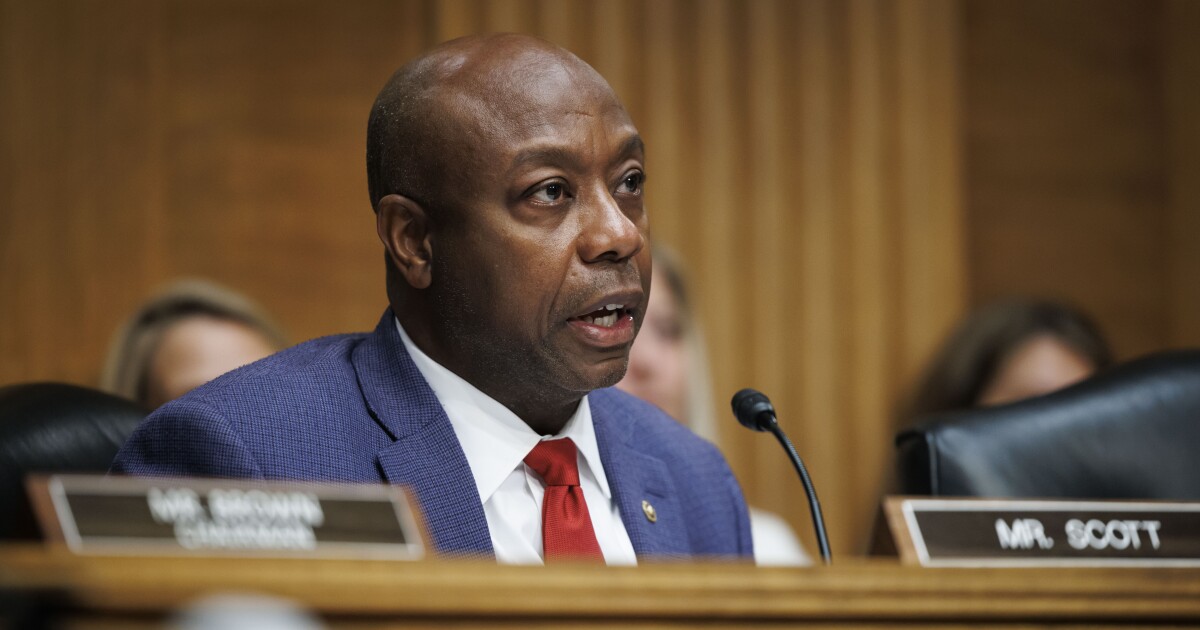
A wide-ranging housing bill Republican Sen. Tim Scott of South Carolina has introduced would position Congress to play more of a role in scrutinizing the government-dominated mortgage market, bring reform to existing systems and increase some forms of assistance.
The Road to Housing Act calls specifically for reforms in loan officer compensation for small loans and counseling. It also would require housing agencies active in the market to report more frequently to Congress than they currently do.
"Costs to buy a home and to rent continue to increase, and homelessness is at record levels. It's past time for Congress to take serious action," Scott, who is currently the ranking member of the Senate Banking Committee, said in a press release.
Seven other Republicans had endorsed the bill at the time of this writing: Sens. Mike Crapo of Idaho, Mike Rounds of South Dakota, Bill Hagerty of Tennessee, Cynthia Lummis of Wyoming, Kate Britt of Alabama, Kevin Cramer of North Dakota and Steve Daines of Montana.
Mortgage and housing groups noted that while the bill lacks bipartisan support, it could be a reference point for legislators' negotiations over policy in the next two years, or potentially even more significant if the outcome of the upcoming election puts Scott in a more influential position.
"The bill, long in the works, is intended to be a marker for Sen. Scott's initial engagement on housing policy should Republicans win a Senate majority in November — and should he, as expected, become chair of the Senate Banking Committee,"
Areas the proposed legislation calls for increased review of include various types of public intervention Democrats have utilized in efforts to address housing concerns. Counselors that the Department of Housing and Urban Development approves would be under more scrutiny, as would various agencies.
For example, the bill would require the Federal Housing Administration to report to Congress on a monthly basis, rather than annually, on the capital ratio for its Mutual Mortgage Insurance Fund, which is used to support loans made to lower-income borrowers.
While the fund's ratio
The bill also proposes congressional intervention in the
The National Housing Conference said some of the items in the bill might be constructive to include a bipartisan initiative, including its incentives for small loans and an updated
The bill "includes important proposals to increase mortgage lending in areas that have been too hard for lenders to serve," said David Dworkin, president and CEO of the National Housing Conference, in a recent newsletter.
"While we are rightly focused on areas where housing prices are far too high, there are many areas in the industrial Midwest and rural areas throughout the country where home prices are so low they are difficult to mortgage," he added.
In addition to the aforementioned items, Scott's bill also includes an expansion of the Rental Assistance Demonstration program, which aims to extend support for voucher-subsidized rental units, and allocates some funding to a program that links payments to outcomes for homeless people.
The bill would also expand a program that allows public housing authorities to innovate and test local strategies with the aim of operating more efficiently.
Other aspects of the bill that focus on program operations or criteria include one that calls for HUD to review the work requirements for people it assists. It also would call for HUD to give preference for grants to people in certain economically distressed Opportunity Zones.



